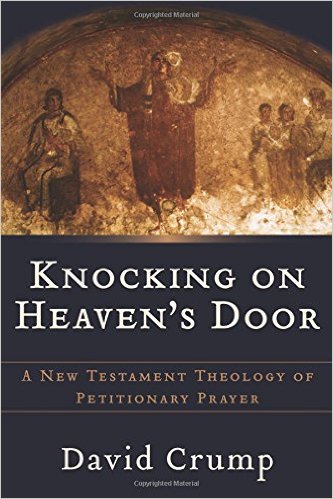Prayer is life for the Christian. It is the spontaneous and necessary cry to God arising from the struggles and hopes and failures and dreams of living in a broken world. Prayer is something we cannot imagine being without. At the same time, prayer is a mystery. It is a discipline and it is hard.
And for most of us prayer is a weakness which becomes, in the end, a burden.
 But is prayer a weakness because it is hard and unnatural for us, or do we find ourselves weak in it because of a misconception of what it is to be? If one trains to be a painter using a faulty and impossible standard, even though he may be good he will judge himself to be weak because he is using erroneous evaluative criteria. Perhaps we are overly critical of our practice of prayer because we are building our critique upon a false model of prayer.
But is prayer a weakness because it is hard and unnatural for us, or do we find ourselves weak in it because of a misconception of what it is to be? If one trains to be a painter using a faulty and impossible standard, even though he may be good he will judge himself to be weak because he is using erroneous evaluative criteria. Perhaps we are overly critical of our practice of prayer because we are building our critique upon a false model of prayer.
Any book that would seek to correct our false ideas of prayer could, in fact, free us to pray. Such is, in my opinion, the value of David Crump’s Knocking on Heaven’s Door. It’s not well known, but surely any book whose title riffs on a Bob Dylan song is deserving of at least a glance.
A glance was all I needed. The book’s subtitle promises that this is “A New Testament Theology of Petitionary Prayer”. David Crump, a professor of religion and theology at Calvin College in Grand Rapids, Michigan, sets out to ‘explain’ prayer as it is presented in the New Testament, which means rescuing prayer from the misconceptions of a well-meant but often mistaken evangelical and fundamentalist heritage. Crump treats that heritage with respect, but his commitment is to Scripture, and it is in opening the Bible to careful attention that he excels and is most helpful.
In reading (and then re-reading – VERY rare for me) I found his explanations of the biblical text careful and thorough and his conclusions convincing. And this book did what few other books on prayer have been able to do. It made me want to pray. In this case, it made me want to pray not because of the effect prayer has had upon some great saint, and not because of some great promise made about prayer. It made me want to pray because I was able to better see it for what it is, and God for whom he is.
I want to spend the summer walking through this book giving readers of this blog a glimpse into Crump’s arguments and conclusions. I want us all to think more clearly about prayer. As well, I want this book to be more widely known. The content is good, the writing accessible (though, at times, more ‘scholarly’ in feel than some may want), and the exegetical model is exemplary. As with any book, I cannot agree with everything in it. But what is here has shaken my world in a good way and is inviting me to change the way I look at and practice prayer as little else has done. Crump’s goal and mine, as I attempt to summarize his work in these posts, are the same:
“May this study so transform both the author and the reader that we will learn to ‘always pray and not give up’ (Luke 18:1)” (page 19)
Yes. May it be so.
❦
